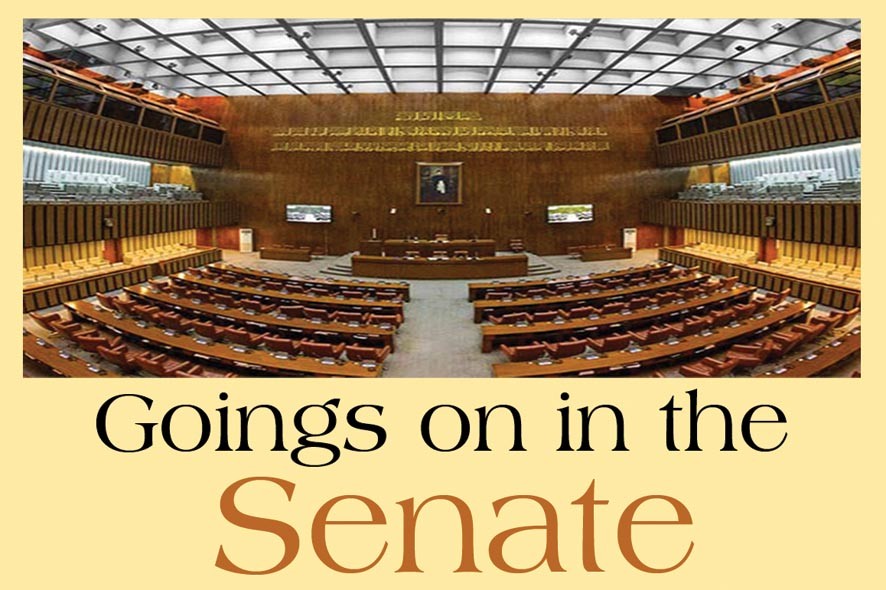

Today, as the Senate elections have been held and the political parties are getting ready to elect the new chairman and deputy chairman for the upper house, it is hard to imagine how difficult this exercise seemed throughout almost all of last year. The uncertainty persisted in the first two months of the current year; the sudden change of status for all PML-N candidates to independent, following a decision by the Supreme Court, was no help either.
Yet, the elections were successfully concluded, notwithstanding the fact that these remained the most discussed of Senate elections with wide allegations of horse-trading and corruption flying around like never before. Within the parliament, each party is clamouring for turf, just as the state institutions are outside the parliament, and in this battle the Senate matters.
It is ironic that the elections became so controversial because the performance of the last Senate was considered praiseworthy on so many counts -- there were systemic reforms improving the performance, prestige and credibility of the institution and the level of debate and legislation was getting better. Issues like provincial autonomy, role of intelligence agencies, missing persons, minorities, Council of Common Interests, local government elections were seen as the high points of the Senate’s performance, even though it had its share of disappointments; it approved the setting up of military courts in the country and later adopted the bill for their extension.
Read also: Rearranging the Upper House
The general public was given more and easy access into the Senate system, allowing their voice to be heard. The parliamentary committees too are said to have been doing a commendable job.
In a vitiated political environment, the continuity of Senate where there is parity of representation for all provinces as guaranteed in the constitution is no less than a blessing; especially after the eighteenth constitutional amendment which takes away the presidential power to dissolve assemblies.
In today’s Special Report, we try to look at the doings in the Senate in the context of the recent election, a lot of which seem connected with the upcoming general election. The muck that is raised has a lot to do with the war of institutions that is trying to engineer desired election results, a hint of which was seen a couple of months back in the Balochistan provincial assembly (the electoral college for Senate) where the ruling party members rebelled against the parent party.
In Tahir Mehdi’s view, there is clearly something wrong with the existing system and a new method of election needs to be devised for Senate. These and other issues form a part of the Special Report.